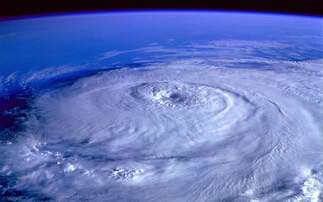Latest UN report on progress towards Sustainable Development Goals warns climate change is eroding the key pillars that drive global development
The impacts of climate change risk eroding progress towards the world's Sustainable Development Goals (SDG) and reversing decades of progress on inequality and food security, according to a stark warning contained in the United Nations' Sustainable Development Goals Report 2019.
Launched earlier this week at the UN High-level Political Forum of Sustainable Development, the report welcomes the progress that has been made against many of the world's 17 development goals. Most notably it highlights how the proportion of people living in extreme poverty has declined from 36 per cent in 1990 to 8.6 per cent in 2018. The report details how this progress has been accompanied by a raft of diverse achievements, including widespread immunization, falling child mortality rates, and an increase in people's access to electricity.
However, echoing recent warnings from a host of Un agencies the report warns that the pace of poverty reduction is beginning to slow as the world struggles to respond to entrenched deprivation, violent conflict, and vulnerabilities to natural disaster. Three quarters of stunted children live in South Asia and sub-Sarahan Africa, while extreme poverty is three times high in rural than urban areas, the report notes. In an onimous sign of troubling times ahead, global hunger is on the rise after a prolonged decline.
Behind all these worrying trends lies the influence of climate change, which the report describes as "the defining issue of our time and the greatest challenge to sustainable development". It finds that 2018 was the fourth warmest year on record, with carbon dioxide concentrations continuing to increase and ocean acidity now 26 per cent higher than in pre-industrial times. It warns climate impacts have already had a devastating effect on the world's oceans, the planet's largest eco-system, covering two-thirds of its surface. It adds that the current rate of emissions increase, acidity is projected to worsen by 100 to 150 per cent by 2100.
Climate change resonates throughout the report, with related impacts found to be undermining progress on SDG2 (to end hunger and improve food security), SDG6 (ensure available and sustainable management of water and sanitation), SDG10 (reduce inequality), SDG11 (make cities and human settlements inclusive, safe, resilient and sustainable), SDG14 (conserve and sustainably use the oceans), and SDG15 (protect forests and biodiversity).
The inter-related nature of the SDGs means that the risk of slowing progress in these key areas is likely to have a knock-on impact on the remaining SDGs.
"The most urgent area for action is climate change," writes the UN Under-Secretary-General for Economic and Social Affairs, Liu Zhenmin, in his introduction to the report. "If we do not cut record-high greenhouse gas emissions now, global warming is projected to reach 1.5C in the coming decades. As we are already seeing, the compounded effects will be catastrophic and irreversible: increasing ocean acidification, coastal erosion, extreme weather conditions, the frequency and severity of natural disasters, continuing land degradation, loss of vital species and the collapse of ecosystems."
He added that maintaining sustainable development in such conditions will prove hugely challenging. "These effects, which will render many parts of the globe uninhabitable, will affect the poor the most," he continued. "They will put food production at risk, leading to widespread food shortages and hunger, and potentially displace up to 140 million people by 2050. The clock for taking decisive actions on climate change is ticking."
Despite the looming climate crisis, the report also demonstrates how valuable opportunities exist to accelerate progress against the goals by leveraging the interlinkages between climate action and the various goals.
For example, the report highlights how reducing greenhouse gas emissions goes hand-in-hand with creating jobs, building more livable cities, and improving health and prosperity for all. In this context, the report welcomes progress towards SDG7, which aims to "ensure access to affordable, reliable, sustainable and modern energy for all. It notes that access to electricity in poorer countries is beginning to accelerate, while the share of renewable energy in total final energy consumption having risen from 16.6 per cent in 2010 to 17.5 per cent in 2016. Progress is even more marked when examined through the lens of international financing commitments for clean and renewable energy in developing countries: from 2000 to 2009, they ranged from $1bn to $4bn a year, before rising to $18.6bn by 2016, a 10-fold increase from the early 2000s.
However, serious challenges remain. Most growth in renewable energy has been concentrated in the electricity sector, and has been powered by the expansion of wind and solar. But electricity makes up only 20 per cent of final energy use, with the remaining 80 per cent concentrated in the heat and transport sectors, where modern renewables penetration stood at only nine per cent and 3.3 per cent of the global market, respectively, in 2016. Meanwhile, investments in clean technologies are still surpassed by those related to fossil fuels, which totalled an enormous $781bn in 2016.
The United Nations will host concurrent Sustainable Development Goals and Climate Action Summits, as well as other crucial meetings, during the high-level week of the 74th Session of the General Assembly in September, where world leaders and the global community will aim to confront these issues head on. Ultimately, the report suggests, the challenge to the world's political and business leaders will be clear: the SDGs are under threat and "unprecedented changes in all aspects of society will be required to avoid the worst effects of climate change".






